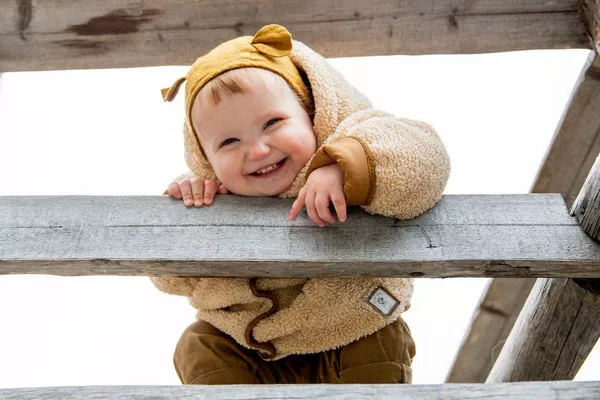Welcoming a newborn into the world is a joyous experience filled with countless precious moments. One of the most heartwarming and memorable milestones is the first time a newborn smiles. As a parent or caregiver, you may find yourself eagerly waiting for that magical moment. In this article, we will explore the fascinating topic of when newborns start to smile, shedding light on this precious expression of happiness.
The Emergence of Social Smiles:
During the first few weeks of life, newborns undergo significant developmental changes. While they may exhibit various reflex smiles in their sleep or during specific muscle movements, true social smiles typically emerge between 6 to 8 weeks of age. These genuine smiles are not just random facial expressions but rather a delightful response to external stimuli, emotions, and social interactions.
Recognizing Social Cues:
As newborns mature, they become increasingly responsive to their environment. Around the age of 2 months, infants start to recognize familiar faces, especially their primary caregivers. This newfound recognition plays a crucial role in triggering their social smiles. The sight of a loving parent or caregiver can evoke a heartwarming smile that tugs at the heartstrings.
Milestones in Cognitive Development:
Newborn smiles are more than just adorable gestures; they also signify important cognitive milestones. At the age of 2 to 3 months, infants begin to engage in active observation of the world around them. They eagerly watch and take in the expressions and interactions of those close to them. This heightened awareness contributes to the emergence of meaningful social smiles.
Positive Reinforcement and Emotional Bonds:
Newborns are highly perceptive to positive reinforcement. When they smile, and their caregivers respond with delight and affection, the baby learns that smiling is a way to connect and communicate. This cycle of positive reinforcement helps strengthen the emotional bond between the infant and their caregivers, fostering a sense of security and trust.
Individual Differences and Developmental Variations:
While the general timeline for the emergence of social smiles is around 6 to 8 weeks, it’s essential to remember that each child is unique. Some infants may start smiling earlier, as early as 4 to 6 weeks, while others may take a little longer to show their first social smile. Factors such as temperament, environment, and early interactions play a role in the timing of this milestone.
Conclusion:
The sight of a newborn’s smile is a heartwarming and cherished experience for parents and caregivers alike. As we’ve explored in this article, newborns typically begin to display social smiles between 6 to 8 weeks of age. This significant milestone is a reflection of their growing cognitive abilities and emotional connections with those around them.
As a caregiver, it’s essential to provide a nurturing and loving environment that encourages positive interactions, leading to the development of strong emotional bonds with your newborn. Remember, every child is unique, and while some may smile earlier than others, the joy of witnessing their first social smile is incomparable, making it a cherished memory for a lifetime. Enjoy every moment of this beautiful journey with your little one, as they continue to amaze you with their growth and development.
FAQs About Newborns’ Smiles
1. Are Reflex Smiles Different from Social Smiles?
Yes, reflex smiles and social smiles are distinct expressions in newborns. Reflex smiles are spontaneous and may occur during sleep or as a result of muscle movements. These smiles are not in response to external stimuli or emotions. On the other hand, social smiles are genuine expressions of happiness or joy in response to social interactions and stimuli, such as the sight of a familiar face or a loving voice.
2. What Stimulates a Newborn’s Social Smile?
Newborns are highly responsive to their environment, and social smiles are often triggered by recognizing familiar faces, especially those of their parents or primary caregivers. As early as 2 months of age, babies begin to show an increased interest in human interactions, leading to more frequent and meaningful social smiles.
3. Can Newborns Differentiate Between Smiles?
Yes, newborns can distinguish between different types of smiles, even at a very young age. Research suggests that infants as young as a few weeks old can differentiate between an adult’s genuine smile and a forced or neutral expression. This ability to recognize and respond to different emotional cues lays the foundation for their social and emotional development.
4. How Can I Encourage My Newborn to Smile?
Encouraging your newborn to smile involves creating a nurturing and loving environment. Respond to their cues promptly, engage in eye contact, and talk to them using a soothing and affectionate tone. Babies thrive on positive reinforcement, so when your little one does smile, respond with delight and affection, reinforcing the bond between you and your baby.
5. What If My Newborn Doesn’t Smile Within the Expected Timeframe?
While most infants start displaying social smiles between 6 to 8 weeks, there can be variations in individual development. Some babies may smile earlier, while others may take a little longer. If your newborn doesn’t smile within the expected timeframe, there’s usually no cause for concern. However, if you have any other developmental concerns or notice other issues, it’s essential to discuss them with your pediatrician.


